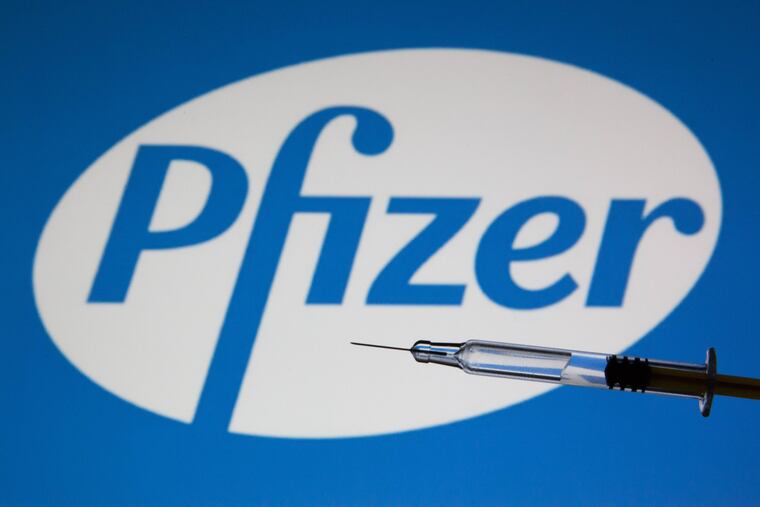Pfizer plans to manufacture up to 100 million doses of an omicron-specific vaccine by the spring
The company also is testing hybrid combinations of vaccine to target multiple coronavirus forms, as well as larger doses.

Pfizer is racing ahead with plans to manufacture 50 million to 100 million doses of a new omicron-specific version of its coronavirus vaccine, a reflection of rising concerns that current vaccine formulations may need to be tweaked for the new threat.
Pfizer also is testing hybrid combinations of vaccine to target multiple coronavirus forms, as well as larger doses.
The omicron-specific doses will be created "at risk," CEO Albert Bourla said Monday, meaning that if they are not needed, Pfizer will absorb the costs. The company has climbed to the lead in global vaccine production with 3 billion doses in 2021 and is planning to produce up to 4 billion doses in 2022.
If it turns out to be necessary to roll out an omicron-targeting vaccine, Pfizer will be ready, Bourla said.
"In terms of manufacturing, we have so big of a capacity built right now, that it won't be an issue to switch immediately," Bourla said at the conference.
Bourla disclosed the manufacturing plans at an annual health-care conference sponsored by JPMorgan Chase but did not provide a number for doses involved. A Pfizer spokesman, Steven Danehy, said in an email Tuesday that "we hope to have 50-100 million doses of the omicron specific vaccine available by late March / early April."
» READ MORE: ‘Flurona’ is real, but don’t panic — it’s common to get two viruses at once
Rapid development and manufacturing changes are made possible by the new mRNA vaccine technology deployed by Moderna and Pfizer, with German partner BioNTech. The companies have said it takes about 90 days from genetic sequencing of a new threat to producing a new lipid nanoparticle vaccine containing the updated mRNA payload, which is an extraordinarily fast time frame for vaccine development.
Pfizer on Monday announced a licensing deal with a San Diego company, Codex DNA, that has a synthetic DNA manufacturing process that should cut the development time even further, to just 60 days, Bourla said.
Moderna is also testing different vaccine formulations, including a hybrid shot that would combine a flu vaccine and a coronavirus vaccine, Moderna CEO Stéphane Bancel said at the biotech conference. Moderna is striving to have a combination shot available by the fall, in preparation for a likely coronavirus surge next winter, he said.
The demand for boosters and, potentially, variant-targeting vaccines and hybrids is causing alarm among global health authorities, who say the greater volumes and new versions will be reserved by wealthy nations and further delay the time Africa and other developing countries get their populations substantially vaccinated.